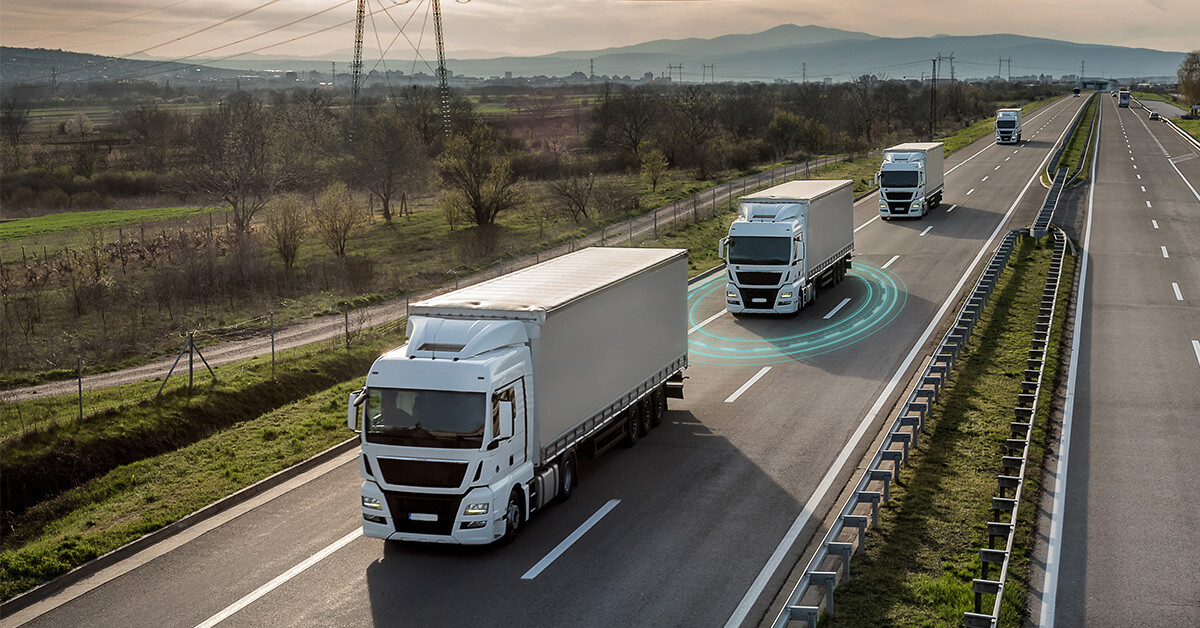As businesses increasingly depend on mobility, they're placing more emphasis on fleet management. Investing in improved oversight can help companies track and manage their vehicles better, save money and keep customers happy. However, without proper management, fleet expenses can stay high—44 % of fleets rated increasing costs as a top challenge to daily fleet operations, according to Verizon’s 2024 Fleet Technology Trends Report.
Technology adoption can help organisations create a more efficient fleet management ecosystem. Across industries, we’ve seen an increase in fleet management technology adoption to monitor organisations and fleets of all sizes.
By leveraging advanced technologies and data-driven insights, businesses can optimise routes, monitor vehicle health, ensure regulatory compliance, improve driver safety and bolster both profitability and efficiency. Here are some ways emerging technologies can benefit organisations in managing their fleet ecosystems, reducing costs and improving operational efficiency.
Intelligent telematics
Intelligent telematics offers several key benefits for fleet management, enhancing efficiency, safety and cost-effectiveness. Additionally, they allow managers to monitor the precise location of each vehicle, optimising routes and ensuring timely deliveries. It also enables them to monitor high-value assets and equipment, reducing the risk of theft and loss. Advanced telematics systems go beyond location tracking to offer insights into vehicle health, driver behaviour and operational efficiency. Integrating these systems across the fleet creates a cohesive data environment, leading to a more streamlined, safer and cost-effective fleet management process.
Best-in-class UX
An intuitive and user-friendly interface simplifies the user experience, making it easy for users to navigate and use the app's features effectively. Integrating robust UX design into fleet management systems significantly enhances user satisfaction and efficiency by providing intuitive interfaces, streamlined workflows and real-time data access. This leads to increased driver engagement and compliance, reduced errors and downtime, and cost savings through optimised route planning and preventative maintenance.
Third-party integration
Third-party integration in fleet management offers enhanced operational efficiency through seamless connectivity with GPS, telematics and fuel management systems. It allows for real-time data synchronisation, improving decision-making and reducing administrative burdens. Integrations with maintenance and compliance platforms ensure timely vehicle upkeep and regulatory adherence, minimising downtime and legal risks. It provides a comprehensive view of fleet performance, enabling better route planning and cost control.
Predictive analytics
By leveraging data-driven insights, predictive analytics enables fleet managers to anticipate maintenance needs, reduce downtime, prevent costly breakdowns and extend vehicle lifespan. Predictive analytics optimises route planning and fuel consumption, leading to substantial savings and improved delivery times. Predictive analytics also aids in risk management by identifying patterns that indicate potential safety issues, thereby improving driver safety and reducing accident rates.
Unified touchpoints
Unified touchpoints in fleet management streamline operations by centralising communication and data access. Fleet managers can access real-time information on vehicle status, driver performance and maintenance needs from a single platform, enhancing efficiency and decision-making. It also offers a harmonised user experience, whether controlling vehicle functions, accessing services or interacting with support.
Flexible software architecture
Flexible software architecture enables seamless scalability, adaptability, and integration with emerging technologies. It allows fleet operators to adjust to changing business needs, integrate new features or third-party applications and manage various vehicles and services. This adaptability fosters improved operational efficiency, reduces downtime and supports innovative solutions for optimising routes, tracking performance and enhancing customer service.
Electrification readiness
By preparing for electric vehicles (EVs), fleet operators reduce fuel costs, lower maintenance expenses and minimise their environmental impact through decreased emissions. Taking a proactive approach to electrification positions fleets to take advantage of government incentives and rebates, future-proofs the operation against rising fuel prices and aligns with evolving regulatory standards. Furthermore, this supports long-term financial savings and enhances the fleet’s public image as a forward-thinking and eco-conscious business.
Security and compliance
Robust security measures and adhering to regulatory standards enable fleet operators to protect sensitive data, prevent unauthorised access, and safeguard against potential cyber threats. Compliance with industry regulations helps avoid legal penalties and ensures adherence to best practices, which can lead to smoother audits and inspections. Moreover, a strong focus on security and compliance enhances the overall reliability of fleet operations, builds trust with clients and partners and supports the long-term success and reputation of the business.
Streamlined payments and personalised insurance
Streamlined payments simplify financial transactions, reducing administrative overhead and ensuring timely and accurate invoice processing, which helps maintain cash flow and operational efficiency. On the other hand, personalised insurance tailors coverage to the fleet's specific needs, offering more relevant protection and potentially reducing costs through customised policies.
A payment orchestration hub integrates multiple financial services, simplifying transactions for users. Moreover, the platform enables personalised insurance premiums using driving data to assess risk more accurately. Together, these solutions enhance overall fleet management by optimising financial operations and providing targeted risk management, leading to smoother operations and better resource allocation.
Simplify your fleet with a comprehensive ecosystem
Evolving digital capabilities have the power to build a comprehensive and intuitive fleet ecosystem and create continuous value. Emerging technological solutions empower businesses to adapt to this new level of demand, integrating vehicle logistics with real-time data analytics, optimising route efficiency and enhancing vehicle maintenance through predictive algorithms. The goal is a fleet ecosystem that operates at peak efficiency and reliability, delivering tangible benefits such as cost savings, improved service delivery and a reduced environmental footprint.
Download our e-book, “Digitalising Fleet Ecosystem Management,” to learn more about how to build a comprehensive fleet management ecosystem.
